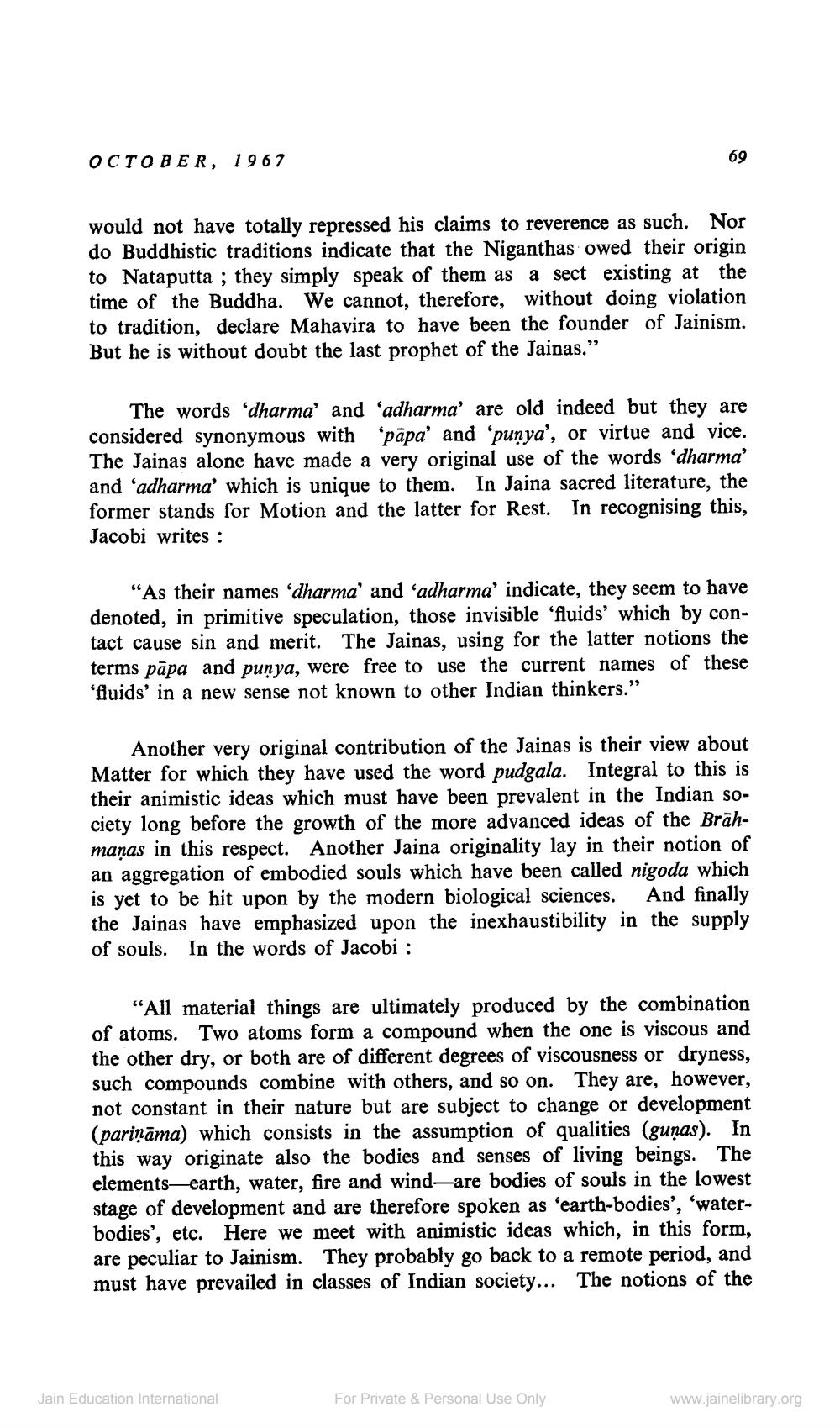________________
OCTOBER, 1967
would not have totally repressed his claims to reverence as such. Nor do Buddhistic traditions indicate that the Niganthas owed their origin to Nataputta ; they simply speak of them as a sect existing at the time of the Buddha. We cannot, therefore, without doing violation to tradition, declare Mahavira to have been the founder of Jainism. But he is without doubt the last prophet of the Jainas.”
The words 'dharma' and 'adharma' are old indeed but they are considered synonymous with 'papa' and 'punya', or virtue and vice. The Jainas alone have made a very original use of the words 'dharma' and 'adharma' which is unique to them. In Jaina sacred literature, the former stands for Motion and the latter for Rest. In recognising this, Jacobi writes :
"As their names 'dharma' and 'adharma' indicate, they seem to have denoted, in primitive speculation, those invisible 'fluids' which by contact cause sin and merit. The Jainas, using for the latter notions the terms pāpa and punya, were free to use the current names of these 'fluids' in a new sense not known to other Indian thinkers."
Another very original contribution of the Jainas is their view about Matter for which they have used the word pudgala. Integral to this is their animistic ideas which must have been prevalent in the Indian society long before the growth of the more advanced ideas of the Brāhmaņas in this respect. Another Jaina originality lay in their notion of an aggregation of embodied souls which have been called nigoda which is yet to be hit upon by the modern biological sciences. And finally the Jainas have emphasized upon the inexhaustibility in the supply of souls. In the words of Jacobi :
"All material things are ultimately produced by the combination of atoms. Two atoms form a compound when the one is viscous and the other dry, or both are of different degrees of viscousness or dryness, such compounds combine with others, and so on. They are, however, not constant in their nature but are subject to change or development (pariņāma) which consists in the assumption of qualities (guņas). In this way originate also the bodies and senses of living beings. The elements-earth, water, fire and wind—are bodies of souls in the lowest stage of development and are therefore spoken as 'earth-bodies', 'waterbodies', etc. Here we meet with animistic ideas which, in this form, are peculiar to Jainism. They probably go back to a remote period, and must have prevailed in classes of Indian society... The notions of the
Jain Education International
For Private & Personal Use Only
www.jainelibrary.org




